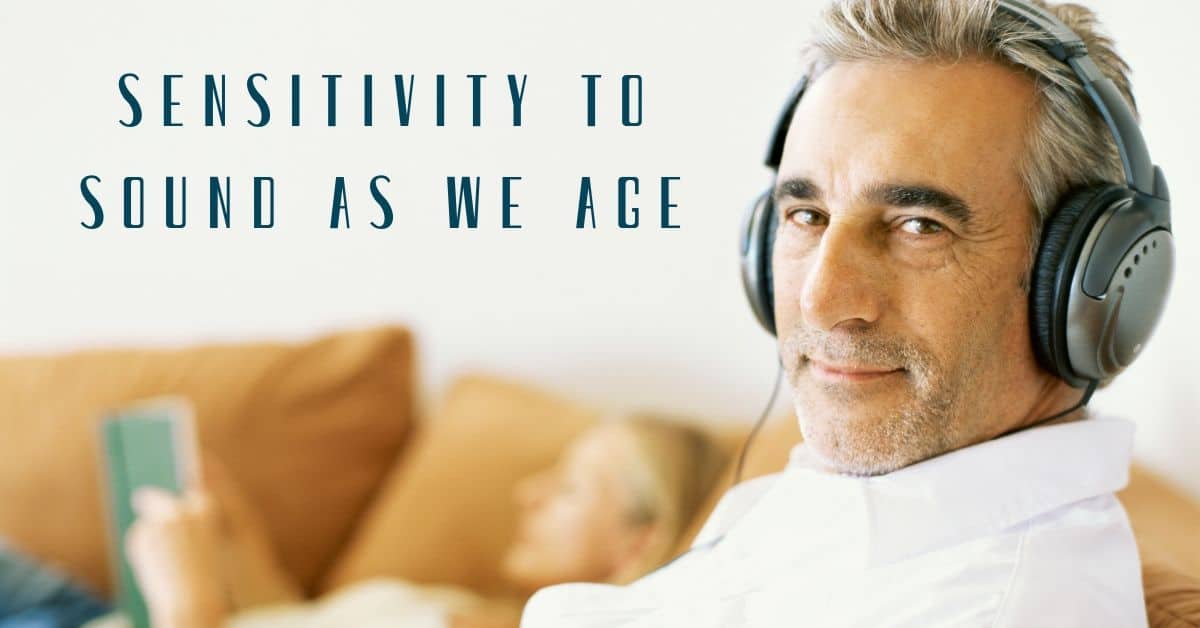Have you noticed any changes to your hearing recently? As we age, our sensitivity to sound changes as well, and younger and older adults experience sound very differently. This increased sensitivity to sound could help explain why seniors sometimes have a harder time hearing in complex listening environments than younger adults, and don’t enjoy spending time in places with a lot of background noise.
Studying Differences in Hearing
A recent study at Western University in Canada looked at the differences in hearing between older and younger adults. Neuroscientists at the university wanted to discover how our brains process sounds, and determine how aging affects the parts of the brain responsible for hearing. They tested hearing in adults in their 20s as well as adults in their 60s who had normal hearing, and looked for differences in brain activity in the auditory cortex.
“We looked at younger and older individuals who have clinically normal hearing and we looked at how the brain’s ability to adjust its sensitivity to sound levels is affected by aging,” explained Björn Herrmann who was researching hearing at Western University. “What we observed is that older individuals don’t adapt as well to their sound environment.” This means that as we age, or ears and brain become more sensitive to sound, and years of wear and tear start to chip away at our ability to hear clearly.
Seniors More Sensitive to Sounds
The study has very clear results that showed that older adults process sounds differently than younger adults. Seniors are more sensitive to sounds than adults in their 20s. For example, when younger adults are in places with very loud noises, like a concert or extremely loud sports venue, the brain responds by becoming less sensitive to quieter sounds. This means that younger adults can hear loud sounds, such as one particular instrument in the concert, or the lead singer’s voice, without being distracted by softer sounds like someone speaking in the row behind them.
Seniors, on the other hand, were more sensitive to sounds. In a similar environment, the brain of a 60-year-old remains very sensitive to all the sounds in the environment, and they’ll hear all sounds, both loud and soft, without being able to easily filter out the softer sounds that they don’t want to hear. Listening to all these sounds leads to a lot of listening fatigue and difficulty hearing since the auditory cortex in the brain gets bombarded with a huge amount of sounds unimportant sounds.
Hearing in Noise
Researchers think that this over-sensitivity to sound could explain why seniors have a much harder time hearing in places with a lot of distracting background sounds, such as in a crowded restaurant or bar. They’re not able to easily tune out unwanted sounds, and all these background sounds become extremely distracting. “It’s a fundamental property of the auditory system to be able to adjust really fast to any environment a person goes into,” says Herrmann. “If you cannot do that anymore, then in each situation your auditory system might be a little off. This means older individuals may be easily distracted and overwhelmed by sounds, or find them too loud.”
How Hearing Aids Can Help
If you’ve been noticing that you can’t hear well in places with a lot of background noise, or struggle to separate important speech sounds from distracting noises, it’s time to consider using hearing aids to help you hear. These sleek, sophisticated devices will help you hear in quiet and in noise, and advanced programs and features are designed to help you hear in challenging situations. With background noise reduction, directionality microphones, and speech enhancement, you’ll be able to focus on the sounds you want to hear, and ignore all the rest. With help from your hearing devices, your brain won’t be overly sensitive to sounds, and will be able to tune out the sounds you don’t want to hear, allowing you to hear easily in every listening environment.
My Hearing Centers
Ready to get back to hearing clearly, and helping your brain hear? Visit us at My Hearing Centers to explore your hearing aid options, and get a few more tips when it comes to hearing in places with a lot of background noise.


